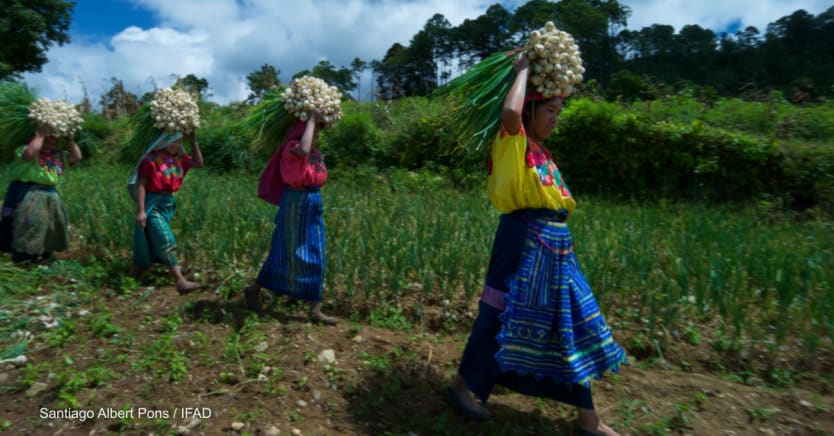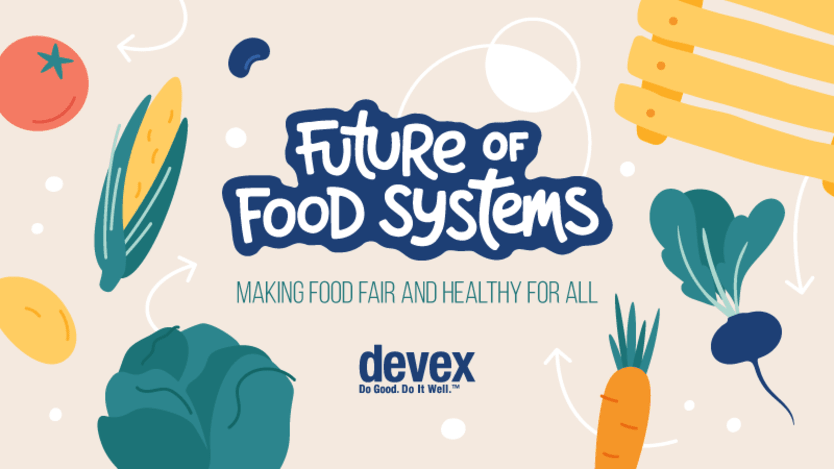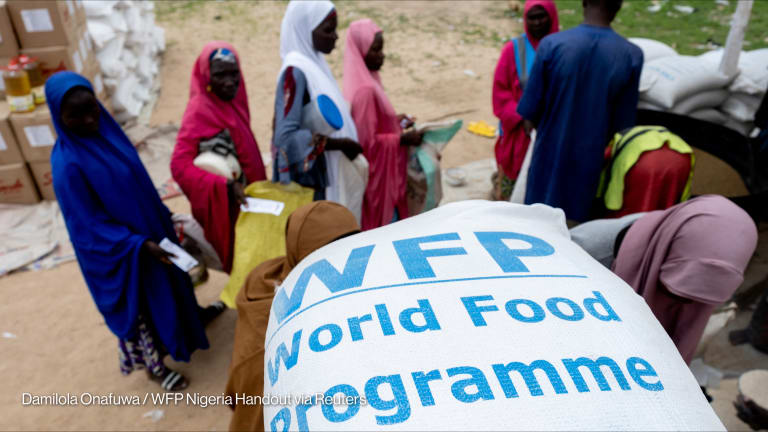
From Europe to the U.S., migration issues are highly politicized, divisive, and complex. When U.S. Vice President Kamala Harris traveled to Central America a few weeks ago to better understand the root causes of migration, she recognized the driving force of poverty that leads people to leave their homes.
Part of our The Future of Food Systems series
Find out how we can make food fair and healthy for all. Join the conversation using the hashtag #FoodSystems and visit our The Future of Food Systems page for more coverage.
Like much of the global south, in Central America poverty, food insecurity, climate change effects, violence, crime, and migration are complex intertwined issues. And central to this are rural small-scale farmers, and addressing the challenges they face in earning a living and sustainably producing food.
The rural dimension of poverty
The so-called Dry Corridor, home to many of the migrants now arriving at the U.S. southern border, is “generally characterized by rural poverty, high unemployment, limited and seasonal labor demands and low and irregularly paid wages” according to a 2017 report.
Devex at the U.N. Food Systems pre-summit
Register for events on July 14-15, where Devex reporters will dig into what is on the agenda, talk to experts, and set the stage for what success looks like for the pre-summit.
Hear from IFAD’s President Gilbert F. Houngbo on July 14 at 10 a.m. ET | 4 p.m. CET.
In the Northern Triangle in particular —Guatemala, Honduras, and El Salvador — this is compounded by erratic weather patterns, with prolonged droughts and heavy rains, which destroy crops for millions of farmers. When people can no longer grow food to earn a living or to feed their families, they may make the difficult decision to migrate.
And it’s not just in Central America. Across the world, it is often the people who make a living on small plots of land who are the most vulnerable to shocks, and are without safety nets to bounce back.
About 80% of the extreme poor live in rural areas, with the majority of them working in agriculture. While these farmers working on less than two hectares of land often battle to grow enough to support themselves, they paradoxically produce about 30% of the world’s food.
Failure of food systems
The impacts of climate change and extreme weather events are devastating for food production. And the issue is circular. The world’s food system — the way we produce, sell, and consume food — is a key driver of our climate crisis, particularly with the expansion of large-scale industrial agriculture.
Globally, food production generates about a third of global greenhouse gas emissions and is a primary source of methane and nitrous oxide emissions. Methane and nitrous oxide have 56 times and 280 times, respectively, the global warming potential of carbon dioxide over a 20-year period.
About 80% of the extreme poor live in rural areas, with the majority of them working in agriculture. While these farmers working on less than two hectares of land often battle to grow enough to support themselves, they paradoxically produce about 30% of the world’s food.
—Beyond the climate impact, our food systems are failing to feed our growing population nutritiously. Even before the pandemic hit, around 700 million people across the world didn’t get enough to eat every day.
There are now likely to be an additional 83 million to 132 million more hungry people. While we produce more food than ever before, about 144 million children are stunted, and 47 million children are wasted. While hundreds of millions of people are obese, some 3 billion don't have the financial means to afford a healthy diet.
Listen to “Farms. Food. Future.”
Until the end of September, IFAD’s podcast will focus on food systems by talking to leaders, innovators, chefs, and farmers — ensuring rural voices are heard.
Why small-scale farming is key
Small-scale farmers in Central America and throughout the world have the potential to play a key role in transforming food systems to support climate adaptation, better nutrition, and decent livelihoods.
Small-scale farms are often more environmentally sustainable than large farms, with practices such as organic farming and crop rotation. They also grow a richer diversity of crops, which is fundamental for nutrition and health. Additionally they often maintain traditional seed varieties, and in that sense safeguard biodiversity.
Globally, growth generated by agriculture is three times more effective in reducing poverty than gross domestic product growth in other sectors. And when rural agriculture thrives, the communities they serve thrive along with them.
When small-scale farmers improve their livelihoods, their higher incomes are overwhelmingly injected back into the rural economy, creating growth, and generating jobs. Small-scale farmers also feed people vulnerable to hunger and malnutrition. These farms serve domestic and local markets and areas that modern supermarkets do not reach.
At the International Fund for Agricultural Development, we have provided resources to the world's small-scale farmers in the developing world for more than 40 years to help them earn decent incomes from farming and to create rural opportunities that attract young people to stay.
But our efforts alone are not nearly enough. More — and smarter — investments in small-scale farming are needed, including partnerships that include both government and the private sector.
The Ceres2030 report found that an additional $14 billion a year is needed from donors until 2030 to end hunger and double the incomes of small-scale farmers. This is not an unrealistic figure for the world’s major economies; $14 billion is less than what New York City spends on its transport system per year.
The Biden administration’s ambitious agenda and commitment to address the root causes of migration comes at an important moment in the lead up to the United Nations’ Food Systems Summit later this year.
If we do not seize this opportunity to prioritize the needs of the world’s rural small-scale farmers whom we depend on for so much of our food — then global poverty and hunger will continue to grow, and migration and unrest will follow. It's time to start paying attention to small farmers, and the time to act is now.
Visit the Future of Food Systems series for more coverage on food and nutrition — and importantly, how we can make food fair and healthy for all. You can join the conversation using the hashtag #FoodSystems.









